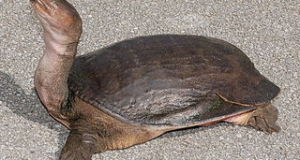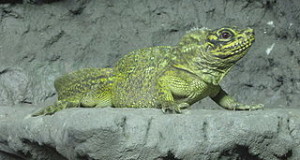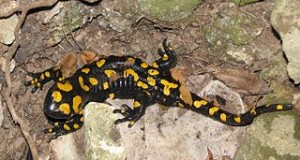 It is said that people who make careers of their passions never work a day in their lives…those of us who have turned our hobbies into livelihoods are indeed fortunate. The following ideas have helped me along the way – I hope they are of some use to you.
It is said that people who make careers of their passions never work a day in their lives…those of us who have turned our hobbies into livelihoods are indeed fortunate. The following ideas have helped me along the way – I hope they are of some use to you.
Speak Up
Interacting with others is very important when you start and progress down your path. I was quite shy as a child, and this certainly hampered me…force yourself to ask questions of your relatives, teachers and folks working in the field.
Read
Read, read, read! The internet is a wonderful resource, and more herp books have been published in recent years than I dreamed possible, but don’t forget the classics. Most herpers are aware of Kauffeld’s “bibles”, but there are scores of other treasures out there.
Books written when people spent time observing and recording behavior offer insights that are unique, and differ from those made later-on. Ditmars’ The Reptiles of North America was published in 1907, but I challenge anyone to read it and come away without much of value. From The Giant Snakes by Pope to the more “adventure-oriented” works of Ionides, Allen and others, you’ll learn much and enjoy yourself immensely.
Travel logs and autobiographies cannot help but inspire. Try Raymond Ditmars: his Exciting Life with Reptiles, Animals & Insects and In Search of Reptiles and Amphibians, a 1988 gem by modern-day herp legend Dick Bartlett.
Observe
Living in herp-poor environments should not deter you from looking about – I found NYC to hold surprising populations of many species, and urban-born friends the world over echo my experiences.
Record Your Observations
 Some of my most important ideas (well, important to me, at least!) took form in my early notebooks, and I still refer back to them. In addition to preserving your observations, writing can be of practical value – childhood notebooks secured my first zookeeper job (long story!).
Some of my most important ideas (well, important to me, at least!) took form in my early notebooks, and I still refer back to them. In addition to preserving your observations, writing can be of practical value – childhood notebooks secured my first zookeeper job (long story!).
In Part 2 of this article we’ll take a look at education, joining local and professional organizations, volunteering and other useful paths to follow. I find it gratifying to help others avoid the stumbling blocks I’ve hit…
Further Reading
Careers in Herpetology (Society of Ichthyologists & Herpetologists).
 That Reptile Blog – Reptile, Amphibian and Exotic Pet Care and Information
That Reptile Blog – Reptile, Amphibian and Exotic Pet Care and Information




“It is said that people who make careers of their passions never work a day in their lives” – wow, that is a great statement. Funny how it’s probably possible to identify a person’s passions pretty early in life. But schools don’t do a very good job of helping us spot our passions, and then fostering them. Thanks.
Hello, Frank Indiviglio here.
Thanks for the kind words. I agree – passions are often very evident early in life, but following them is often a difficult path. I also feel that schools could do much more, but I’m not hopeful that will occur anytime soon…up to parents or other responsible adults for the most part.
Good luck and please keep me posted.
Best regards, Frank Indiviglio.
Thank you for this article, it is very helpful. I have a problem with being shy, so i do not ask as much questions as i should and this article gives me an idea on what i should do. And i also live in a herp-poor environment, so what specifically can i do outside of school to help prepare me for my career interests of being a herpetologist? I read plenty of articles and books i just do not know how to apply my knowledge; if that makes any sense.
Hello Nigel, Frank Indiviglio here.
Thanks for the kind words, much appreciated;
You make perfect sense…actually shyness held me back a great deal in my early years. I grew up in NYC, surrounded by some of the best herp institutions and people in the world, but did not really make any connections with people until well into adulthood. Too bad, because I found that most people, even those at the very top of the field, were just like you and I – they started out as kids interested in herps and other animals, and most retain that childish sense of wonder. Most everyone is willing to offer advice and help out younger people who are sincerely interested, so think about speaking up if the opportunity arises…nothing lost if it doesn’t work out, you’ll both forget each other soon enough!
Volunteering in a zoo, nature center or similar place is a great way to gain experience. Try checking local colleges to see if any professors are doing field work – they may welcome volunteer help; local herp clubs, turtle/tortoise clubs etc are a good way to meet people and make contacts – let me know if you need help in locating those close to you.
The Center for NA Herpetology has articles posted on careers in Herpetology, and also provides email updates concerning jobs and internships; if you can travel, summer internships are very valuable; sign up just to see what’s out there.
Professional journals are good to read in addition to popular articles; Herpetologica and the other older ones are a bit costly, but IRCF Reptiles and Amphibians is very reasonable and extremely interesting…this will give you a good idea of what people in the field are up to.
Part II should be posted soon; please feel free to write back for more info, and please keep me posted on your progress,
Good luck and enjoy,
Frank Indiviglio.
Thank you so much for the advice and links. It is very helpful and i appreciate it a lot.
Hello Nigel, Frank Indiviglio here.
Thanks, my pleasure.
Good luck with all and please keep me posted.
Best regards, Frank Indiviglio.
Hi
this article was very interesting for me. September I start the long journey into conservation work and hopefully entomology. I started keeping ant colonies last year and then went on to deciding to keep a scorpion (for some reason my mum prefers this to a lizard)
When you say ‘make notes’ what sort of stuff should be written down? How can I tell if something is worth writing down?
Cheers
Thanks, glad you enjoyed. Very exciting to be starting out – I’m sure you have much of interest ahead of you. Perhaps keep arachnology in mind as well – scorpion venom work may be a developing field (medicinal uses).
Basic rule of thumb is to record everything, no matter how routine it seems; sorry, but that is the best way. I still refer to notes I wrote decades ago…you just never can predict what will become important as time goes on, and you’ll be surprised how much you will forget if you do not write it down. If you read books written by many years ago, it willl be easy to see how much of what they predicted and recorded influenced what we know today (try Ditmars, Ivan Sanderson, Durrell as examples). Given your interests, you might really enjoy To the Zoo in a Plastic Box, a book about 2 twin brothers who collected insects for the London Zoo.
Please let me know if you need any further information. Good luck, enjoy and please keep me posted.
Best regards, Frank Indiviglio.
Hi,I have always enjoyed Science growing up.I got a chance to go to College and took it,I chose Agriculture Biologist but they stopped offering it one semester before I started.I then chose Biotechnology,I am in my third semester now.My instructor asked us to find a career that we thought was different.In class I thought of Alligators and Crocks.Doing so I came across your site.I thought AWESOME.Oh did I say I love turtles? i ware one around my neck. I was amassed to find this,and I like it as well.I graduated HS in 1985,with a learning disability so even thinking of going to college back wasn’t a thought at all.I am doing my best and I am a full time student with a part time job. Is there any thing you can do to help me with my classes as to not get discouraged,as I failed bio111,last semester and really do want this to happen.I made a promise to a little girl when I graduated HS her mommy would make something of herself,and that little girl will be 30 in June and has done well for herself.That You for you site,and GOD BLESS.
Hi Wendy,
Thanks for the kind words, much appreciated, and my compliments on your determination. My own road to my ideal career was also long and twisted…different concerns than your own, but many roadblocks. What helped me was the knowledge that I would be a better person for my loved ones, and myself, if I eventually was able to follow my passion. Easy to say, of course, but important to keep in mind. As I also had responsibilities to others, I needed to work at undesirable jobs, and to take longer than most to complete my education. Zoo work pays poorly at all levels, esp. given NYC living expenses, so I’ve always had a second job. But well worth it for me. I wish I had more practical advice for you..
Good luck and enjoy, Frank